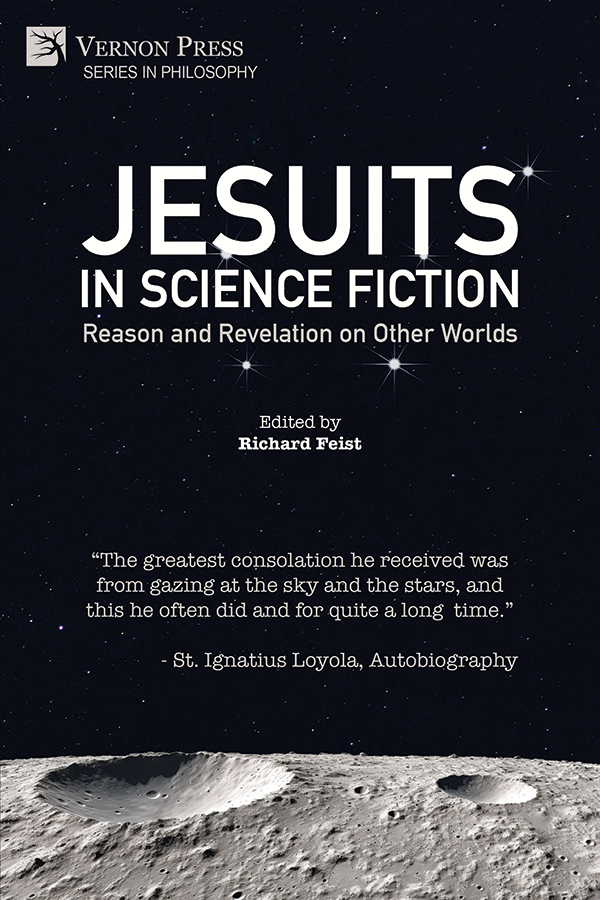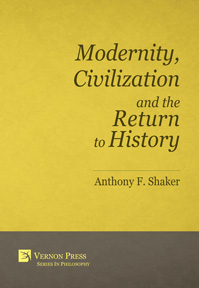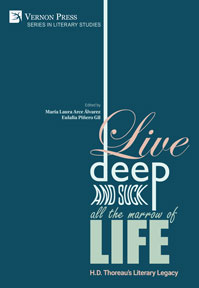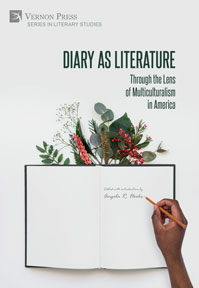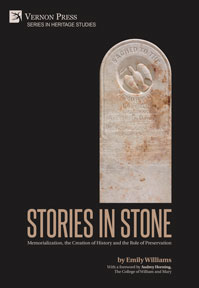Jesuits in Science Fiction: Reason and Revelation on Other Worlds
Richard Feist (Ed.)
by Kathryn Morris (University of King’s College), Edmund Lazzari (Duquesne University; Marquette University), Aglaia Maretta Venters (Xavier University, Montclair State University), Richard Feist (Saint Paul University), Carrie Melmoth , M. Blake Wilson (California State University), Matt Phillips (UNC Greensboro), Steven Hrotic (Norwich University), Patrick Aura (Université de Montréal), Jess Flarity (University of New Hampshire), John Hurtgen (Campbellsville University), Joseph Hurtgen , David Porter (Hunan Normal University), Stefan Forrester (University of Montevallo), Riccardo Gramantieri
Feist’s volume contests the often-accepted trope of the conflict between religion and science by looking at the presence and representations of Jesuits in modern science fiction. Its 14 discerning essays focus on the otherworldly spirituality, openness, and commitment to reason of the Jesuit priest, whose presence in science fiction is employed to provide insight into imagined future worlds. This volume reveals to the reader not only more about those future worlds, but also about the religious core that often underlies humanity's engagement with science.
Prof. Dr. William Sweet
Membre titulaire, Institut international de philosophie (Paris)
Fellow, Brian Mulroney Institute of Government
Director, Centre for Philosophy, Theology, and Cultural Traditions
Department of Philosophy
St Francis Xavier University
For Ignatius of Loyola, the Founder of the Jesuits, regular contemplation of the night sky was among his most moving experiences of spiritual consolation. Could he have imagined that one day his Order would reach those stars—understood today as suns with orbiting planets—by the engines of the science fiction genre? Guided by the editorial hand of Richard Feist, this book offers essays on Jesuit logic, expositions of “Jesuit themes” in the works of authors like Philip K. Dick and Walter Miller Jr., interstellar missions and First Contact, archeology and the ruins of past civilizations, theology, spiritual practice, and celebrating mass on other worlds. Science fiction speculates on what future history might be, and for any number of reasons, the Jesuits play a conspicuous role in that future.
Rev. Dr. Mark Slatter
Faculty of Theology
Saint Paul University, Ottawa, Ontario
“Jesuits in Science Fiction” is an enthralling vista into an unearthed genre of writing: science fiction narratives that feature Jesuit characters and themes. The Jesuit order, contrary to the medieval Dominicans and Franciscans, was founded in the 16th-century and is thus a pre-eminently modern institution. The Jesuits are very much tied to the major developments of the modern world, from the advancement of natural science in the Galileo affair to the discovery of the New World to the revolutions of philosophical and political thought. But it is their presence in science fiction stories that allows the Jesuits to bring their unique perspective to bear on myriad topics, principally the balance between reason and faith, the natural and supernatural, and the questioning mind of science and the assurance of religious belief. From the popular works of Philip K. Dick to the lesser-known writings of Neil Gaiman and Lino Aldani, this is a book that is revelatory and informative as it sheds light on a generally unexplored terrain. I would definitely recommend it to anybody who is interested in science fiction writing that lies at the intersection of religion and philosophy.
Dr. Nikolaj Zunic
St. Jerome’s University, Waterloo, Ontario, Canada
From their founding in 1540 to this day, Jesuits have been controversial. Their centuries of missionary work have taken them to all corners of the world. They have been accused of killing Kings and Presidents and contributing to colonization and destruction of cultures—even participating in enslavement. But the Jesuits have also been seen as bringers of light and education. With their ferocity of purpose and intellectual rigor, the Jesuits’ impact on world history cannot be ignored. No surprise then, that Jesuits appear in literature, especially that literature of ideas, exploration, and social commentary, otherwise known as science fiction.
This unique collection of essays explores how the Jesuit has long been part of science fiction’s history and how Jesuit ideas and characters are featured in some of science fiction’s greatest works. In this collection, we see Jesuits continue their missionary spirit as they take leave of the earth, moving their missionary labors literally towards the heavens. Reason and revelation are now indeed on other worlds. In this collection, we have explorations of philosophy, science, theology, and culture, all done in typical Jesuit fashion, always in various and foreign contexts. This collection is akin to others in its linking of religion and science fiction, but it is unique in its concentration on the Jesuits and science fiction.
This collection will be of interest to scholars working and researching in the field of science fiction studies and would be suitable for courses on science fiction. But it will also be of interest and accessible to those of us who simply love science fiction for its power to explore other worlds and, in this case, to take some of the deepest human reflections, namely those on God, morals and culture, lift them up, and see what forms they may take on other worlds.
Contributors
Foreword
Br Guy Consolmagno SJ
Director, Vatican Observatory
Introduction
Richard Feist
Saint Paul University
Early Jesuits and Science Fiction
Chapter 1 Jesuits in Early Modern Science Fiction
Kathryn Morris
University of King’s College
Chapter 2 Jesuits, Science Fiction and Wonder in John Barclay’s Satyricon and Athanasius Kircher’s Itinerarium exstaticum
David Porter
Hunan Normal University
Jesuit Missions
Chapter 3 Missions to Extraterrestrials
Edmund Lazzari
Duquesne University
Chapter 4 Tension of the Colonized and the Colonizers in Neil Gaiman’s American Gods
Aglaia Venters
Xavier University, Montclair State University
Chapter 5 A Jesuit on Lithia: James Blish’s Jesuit Reasoning on Another World in A Case of Conscience
Richard Feist
Saint Paul University
Jesuits and Philip K. Dick
Chapter 6 Reason and Revelation in Philip K. Dick and Pierre Teilhard de Chardin
Carrie Melmoth
Independent scholar
Chapter 7 Perturbations in the Reality Fields: Logos, Gnosis, and Aletheia in Philip K. Dick’s Late Works
M. Blake Wilson
California State University
Jesuits and Theological Goals
Chapter 8 The Jesuit Order and Notions of Truth in Dune: Spiritual, Political, Moral
Stefan Forrester
University of Montevallo
Matt Phillips
UNC Greensboro
Chapter 9 The Catholics of Darkover
Steven Hrotic
Norwich University
Chapter 10 Textuality, Epistemology & Faith: Overviewing Jesuits in the Science Fiction Short Story
Patrick Aura
Université de Montréal
Chapter 11 Between the Jesuits and Liberation Theology: Lino Aldani’s La croce di ghiaccio [The Ice Cross]
Riccardo Gramantieri
Independent scholar
Chapter 12 Empowering Catholic Women in the Far Future: An Argument for Female Jesuit Priests and Lady Space Marines in Warhammer 40k
Jess Flarity
University of New Hampshire
Chapter 13 Revelation and Destruction in Walter Miller Jr.’s A Canticle for Leibowitz
John Hurtgen
Campbellsville University
Joseph Hurtgen
Independent scholar
Works Cited
Index
Dr. Richard Feist’s educational background includes a Bachelor of Education in which he majored in mathematics and physics. His MA and PhD were both in the philosophy of science. He has taught numerous courses in philosophy, ethics, and the philosophy of science. His research and publications have been in the philosophy of mathematics, science, metaphysics, and ethics. He has taught numerous courses in all these areas. He has also had a long interest in science fiction and literature in general. Brought up Catholic, attending Catholic Schools as a child and then teaching at a Catholic university, has contributed to his longstanding interest in the history of the Catholic Church—especially the clash between the Jesuits and Galileo. Dr. Feist has always had a deep love of science fiction, which was the original spark that led to him studying physics and philosophy. Teaching at Saint Paul University alongside theologians inspired him to take a deeper, more theoretical interest in the Jesuits and to consider bringing all these strands (philosophy, science, theology, Jesuits, and science fiction) together in an academic manner. The first instance was to publish a couple of papers on Phillip K. Dick and religious and philosophical themes. The second was a conference on Jesuits and Science Fiction held some years ago in Boston. Some of the papers in this volume are from that conference, while others were deliberately solicited for this volume. The next task, though, is a full-scale, single-author study of Jesuit theology and science fiction themes.
Jesuits, science fiction, early modern, plurality of worlds, scientific revolution, science and religion, Athanasius Kircher, John Barclay, Latin novels, cosmogony, satire, C. S. Lewis, extraterrestrial life, salvation of extraterrestrials, Dan Simmons, Orson Scott Card, missionary activity, Syncretism, colonization, Gods, technology, self-realization, power, reasoning, logic, philosophy of science, positivism, reason, revelation, Teilhard, Philip K. Dick, philosophy, religion, Gnosticism, Christianity, Heidegger, Dune, truth, spirituality, politics, morality, philosophy, literature, James Blish, Mary Doria Russell, anthropology, cultural evolution, religion, Jesuits, Darkover, short story, rhetoric, epistemology, (re)adaptation, reason, allegory, Lino Aldani, Christianity, gypsies, Italian, Liberation Theology, feminism, Catholicism, popular fiction, divine in the secular, nuclear apocalypse, revelation, sacred in the secular
Subjects
Sociology
Language and Linguistics
Philosophy
Series
Series in Philosophy
Related services
Find in a library near you Download HQ cover Find in Bookshop.org Find this title in AmazonSee also
Bibliographic Information
Book Title
Jesuits in Science Fiction: Reason and Revelation on Other Worlds
ISBN
979-8-8819-0109-7
Edition
1st
Number of pages
318
Physical size
236mm x 160mm

